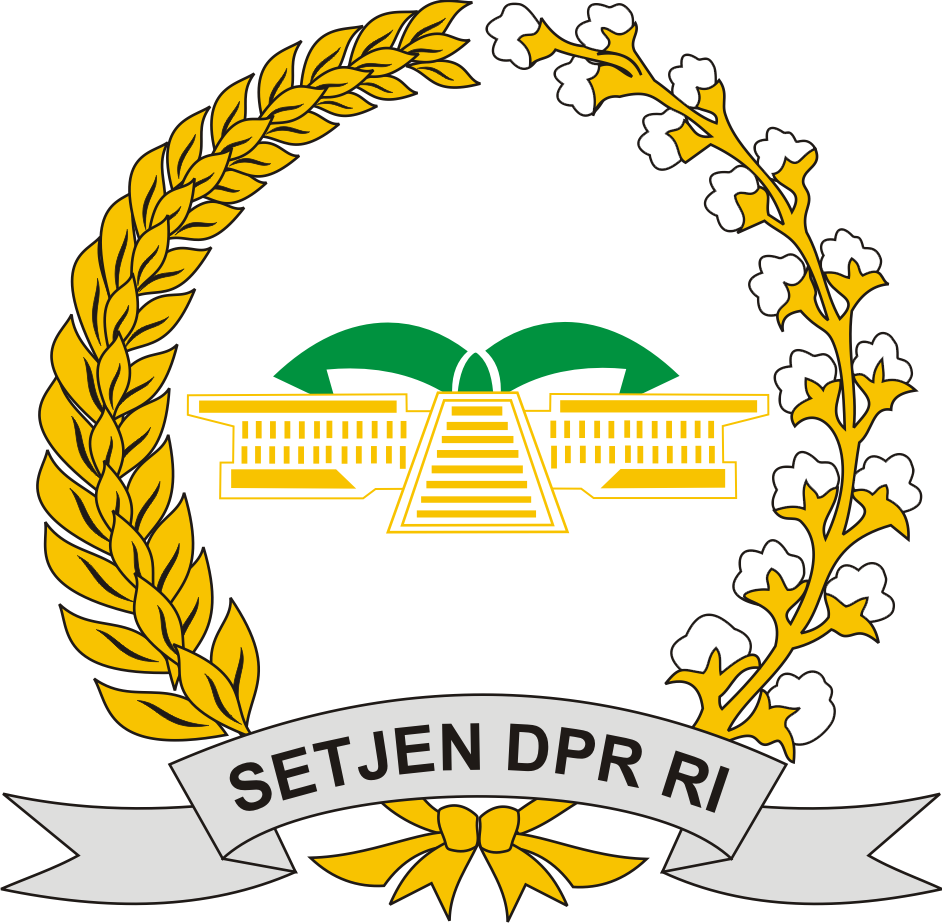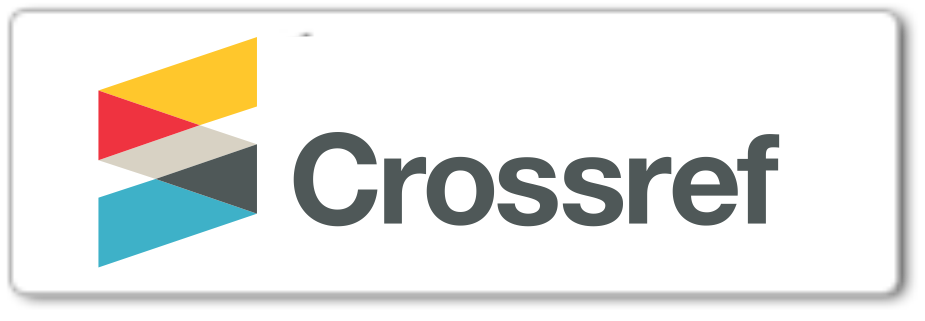Legalitas Peraturan Presiden tentang Sistem Pemerintahan Berbasis Elektronik dalam Sistem Pemerintahan di Indonesia (Legality of the Presidential Regulation on Electronic- Based Government Systems in the Government System in Indonesia)
Abstract
The Electronic-Based Government System (SPBE) is regulated by a Presidential Regulation. The legal basis for the regulation of SPBE needs to be stronger despite its vital nature. The problem addressed in this paper is the effectiveness of SPBE regulatory laws within the Indonesian government system and the efforts made to enhance
the legality of SPBE regulations within the Indonesian government system. This paper aims to determine the legal effectiveness of SPBE regulations in the Indonesian government system and the efforts to strengthen the legality of SPBE regulations within the system. The method employed in this paper is normative juridical analysis. The discussion shows that the current SPBE arrangements within the Indonesian government system can be considered ineffective. This is due to numerous higher sectoral regulations, which neglect the regulations outlined in the SPBE Presidential Regulation. The legality of regulations concerning SPBE should be elevated to the status of law. Improving the quality of public services across all agencies or institutions necessitates a legal framework that can provide legal certainty. The SPBE rules should, at a minimum, offer a clear and solid definition of SPBE, outline the functions, duties, and authority of central agencies and regional governments, address the formation
of the National SPBE Master Plan, and cover aspects such as architecture, roadmap, budget planning, business processes, risk management, infrastructure, information and communication technology audits, organizers, SPBE users, and the granting of SPBE management authority.
Abstrak
Sistem Pemerintahan Berbasis Elektronik (SPBE) diatur dalam Peraturan Presiden (Perpres). Dasar hukum pengaturan SPBE tersebut masih lemah, padahal substansi SPBE sangatlah penting. Permasalahan dalam tulisan ini yaitu bagaimana efektivitas hukum pengaturan SPBE dalam sistem pemerintahan Indonesia dan bagaimana upaya meningkatkan legalitas peraturan SPBE dalam sistem pemerintahan di Indonesia? Tulisan ini bertujuan untuk mengetahui efektivitas hukum pengaturan SPBE dalam sistem pemerintahan Indonesia dan upaya penguatan legalitas pengaturan SPBE dalam sistem. Metode yang digunakan dalam tulisan ini adalah analisis yuridis normatif. Dari pembahasan diketahui bahwa
pengaturan SPBE dalam sistem pemerintahan Indonesia, saat ini dapat dikatakan tidak efektif. Hal ini dikarenakan masih banyak peraturan sektoral yang lebih tinggi sehingga menyebabkan aturan yang ada dalam Perpres SPBE tidak diindahkan. Legalitas peraturan tentang SPBE perlu ditingkatkan levelnya menjadi Undang-Undang. Peningkatan kualitas pelayanan publik pada seluruh instansi atau lembaga memerlukan legalitas atau aturan yang dapat memberikan kepastian hukum. Aturan SPBE diharapkan paling sedikit mengatur definisi yang jelas dan tegas tentang SPBE; fungsi, tugas, dan kewenangan instansi pusat serta pemerintah daerah; pembentukan Rencana Induk SPBE Nasional; arsitektur, peta rencana, rencana anggaran, proses bisnis, manajemen risiko, infrastruktur, audit teknologi informasi dan komunikasi, penyelenggara, pengguna SPBE; dan pemberian kewenangan pengelolaan SPBE.
Keywords
Full Text:
PDFReferences
Adu, Arifin La, Rudy Hartanto, Silmi Fauziati. "Hambatan-Hambatan dalam Implementasi Layanan Sistem Pemerintahan Berbasis Elektronik (SPBE) pada Pemerintah Daerah". Jurnal JIKO (Jurnal Informatika dan Komputer) 5, No.3 (Desember 2022): 215–223.
Asshiddiqie, Jimly. Perihal Undang-Undang. Jakarta: Konstitusi Press, 2011.
Anderson, Dennis et al. E-Government Strategy, ICT and Innovation for Citizen Engagement. (New York: Springer, 2015)
Anugrah, Zhean Esa, Saifullah Zakaria, dan Ivan Darmawan. "Evaluasi Sistem Pemerintahan Berbasis Elektronik (SPBE) di Kota Bekasi Tahun 2020". Jurnal Janitra (Jurnal Administrasi Pemerintahan) 2, No. 1. (April 2022): 13 - 24.
Bannister, Frank, and Regina Connolly. Frank Bannister and Regina Connolly, “Defining E-Governance”, Jurnal E-Service 8, No 2 (Januari, 2012): 3–25, https://www.jstor.org/stable/pdf/10.2979/eservicej.8.2.3.pdf.
Budiyardi, Lu Sudiman, dan Rufinus Hotmaulana Hutauruk, “Pengaruh Imunitas Pejabat Negara dan Kebijakan Keuangan Negara dalam Pencegahan KKN Pada Masa Covid-19”. Jurnal Komunikasi Hukum 8, No. 2. (Agustus 2022): 301 – 314. https://doi.org/10.23887/jkh.v8i2.50957.
Castells, Manuel and Gustavo Cardoso. ed. The Network Society: From Knowledge to Policy. Washington DC: John Hopkins Center for Translantic Relations, 2005.
Chen, Yu-Che. Managing Digital Governance: Issues, Challenges, and Solutions. New York: Francis and Taylor, 2017.
Dobra, Alexandra. "The Democratic Impact of ICT in Africa". Jurnal Africa Spectrum 47, No. 1 (2012): 73-88.
“DPR Dukung Inovasi Pelayanan Publik”, diakses 19 September, 2023, https://menpan.go.id/site/berita-terkini/dpr-dukung-inovasi-pelayanan-publik.
Finger, M., and T Langenberg. 2007. “Finger, M., & Langenberg, T.” Idea Group Reference. 2: 629–633.
Friedman, Lawrence M, "On Legal Development". Rutgers Law Review 24, No. 1 (1969).
Gil-Garcia, J. Ramon, Sharon S Dawes, and Theresa A. Pardo. “Digital Government and Public Management Research: Finding the Crossroads”. Jurnal Public Management Review 20, No. 5 (Mei 017): 633–646. https://doi.org/10.1080/14719037.2017.1327181
Grönlund, Åke and Thomas A. Horan. “Introducing e-Gov: History, Definitions, and Issues”. Journal Communications of the Association for Information Systems 15 (June, 2004). https://doi.org/10.17705/1cais.01539.
“Ini Kendala Penerapan Sistem Pemerintahan berbasis Elektronik menuruh Kementerian PANRB”. diakses 19 September, 2023. https://sumbar.antaranews.com/berita/222602/ini-kendala-penerapan-sistem-pemerintahan-berbasis-elektronik-menurut-kementerian-panrb.
Islami, Maulia Jayantina, “Implementasi Satu Data Indonesia: Tantangan dan Critical Success Factors (CSFs)”, Jurnal Komunika 10, No. 1, (Juni 2021): 13–23. 10.31504/komunika.v9i1.3750.
Indrati, Maria Farida, Ilmu Perundang-Undangan 1; Jenis, Fungsi dan Materi Muatan. (Yogyakarta: Kanisius, 2007).
M, Finger and T Langenberg. Electronic Governance. In: encylopedia of Digital Government. Vol 2, (Hersey: Idea Group Reference, 2007).
Mahanani, Anajeng Esri Edhi. “Rekonstruksi Budaya Hukum Berdimensi Pancasia dalam Upaya Penegakan Hukum di Indonesia”. dalam Jurnal Yustika 22, No. 1 (Juli, 2019): 1-10.
McLoughlin, Ian Patrick, Robert Wilson, and Mike Martin. Digital Government at Work: A Social Informatics Perspective. (UK: Oxford University Press, 2013).
Juairiyah, Oktaf. dan Hendrixon. "Penerapan E-Office dalam Administrasi Perkantoran". Jurnal Pembangunan Nagari 2, No. 1 (Juni, 2017): 75-84. https://doi.org/10.30559/jpn.v2i1.15.
“Kajian Evaluasi Implementasi dan Strategi Optimalisasi Kebijakan Sistem Pemerintahan Berbasis Elektronik”, diakses 19 September, 2023, https://bp2d.jabarprov.go.id/download/hasil-kelitbangan/policybrief/kajian-evaluasi-implementasi-dan-strategi-optimalisasi-kebijakan-sistem-laporan-kajian-evaluasi-implementasi-dan-strategi-optimalisasi-kebijakan-sistem-pemerintahan-berbasis-elektronik-spbe.
Kumar, Puneet, Vinod Kumar Jain, Kumar Sambhav Pareek, ed. The Role of E- Government in Nigeria: Legal Issues and Barriers against Complete Implementation. New York: CRC Press, 2018. https://doi.org/10.1201/9780203731451
Listiningrum, Prischa. "Eksistensi dan Kedudukan Peraturan Presiden dalam Hierarki Peraturan Perundang-Undangan di Indonesia". Jurnal Arena Hukum 12, No. 2. (Agustus 2019):337 – 355. https://doi.org/10.21776/ub.arenahukum.2019.01202.7.
Mulyani, Sri. "Penyelesaian Perkara Tindak Pidana Ringka menurut Undang-Undang dalam Perspektif Restorative Justice". Jurnal De Jure 16, No. 3. (September 2016): 337 – 351. http://dx.doi.org/10.30641/dejure.2016.V16.337-351.
OECD.“Implementing E-Government in Oecd Countries: Experiences and Challenges ”. 2005. https://www.oecd.org/mena/governance/36853121.pdf.
Prabowo, Hadi, Dadang Suwanda dan Wirman Syafri. Inovasi Pelayanan Pada Organisasi Publik. Bandung: Remaja Rosdakarya, 2022.
“Percepat Pemerintahan Ditigal Tim SPBE Nasional Selenggarakan Rapat Koordinasi”, diakses 22 September 2023, https://www.menpan.go.id/site/berita-terkini/percepat-pemerintahan-digital-tim-spbe-nasional-selenggarakan-rapat-koordinasi.
STEI ITB.“Sejak Kapan Masyarakat Indonesia Menikmati Internet”. diakses 21 Juli, 2023. https://stei.itb.ac.id/blog/2017/06/19/sejak-kapan-masyarakat-indonesia-nikmati-internet/.
Shirazi, Farid. "The Contribution of ICT to Freedom and Democracy: An Empirical Analysis of Archival Data on the Middle East". The Electronic Journal on Information Systems in Developing Countries 35, No. 6 (2008): 1-24.
Suparto. “Problematika Pengujian Peraturan Perundang-Undangan di Mahkamah Agung (Kajian terhadap Putusan Mahkamah Agung No. 65 P/HUM/2018)”. Jurnal SASI, 27 No. 1, (Januari–Maret 2021): 61-72. https://doi.org/10.47268/sasi.v27i1.417.
UNDP. “From Connectivity to Service Delivery: Case Studies in e-Governance.” 2013. https://www.undp.org/content/dam/undp/library/Democratic %0AGovernance/Access to Information and E-governance/From Connectivity to Service %0ADelivery - Case Studies in E-Governance.pdf%0A.
Vu, Khuong. Measuring the Impact of ICT Investments on Economic Growth. 21 Juli 2023.https://citeseerx.ist.psu.edu/document?repid=rep1&type=pdf&doi=bc0f46f772594fbd19a85593304115e86c3a9fbc.
West, Darrell M. Digital Government: Technology and Public Sector Performance. United Kingdom: Princeton Univesity Press, 2011.

This work is licensed under a Creative Commons Attribution-NonCommercial-ShareAlike 4.0 International License.
Refbacks
- There are currently no refbacks.



.png)
1.jpg)



 helni mutiarsih jumhur, Denico Doly
helni mutiarsih jumhur, Denico Doly








